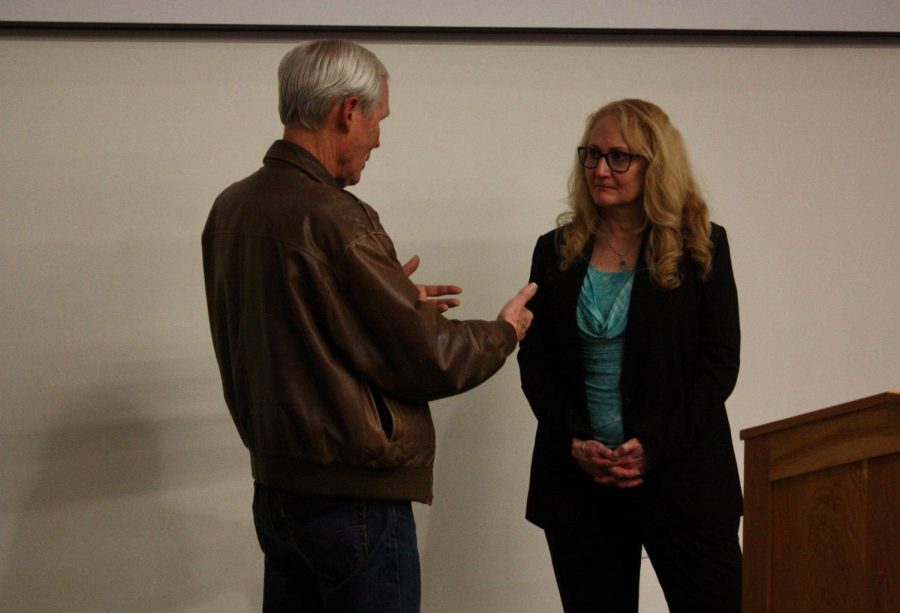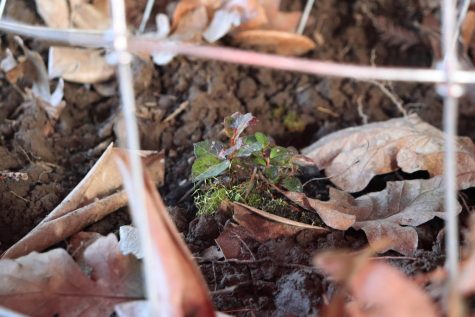A World Without Soil: A tale of disappointments and hope
Jo Henderson, right, spoke at Linfield’s Graf auditorium last week.
Linfield University sits at the epicenter of Oregon wine country. Much of the local economy is reliant on job creation and tourism brought in the wine-making industry. Vineyards rest upon rolling hills of rich soil, but for those small artisans and tasting rooms tomorrow isn’t promised.
The very foundation of their business and agriculture around the world is being washed away. Farming practices and heavy rains in recent years have swept the nutrient-rich substance into oceans and other water sources. This means soil and the microorganisms that inhabit it are being depleted at alarming rates globally. If 50 percent or more of soil is eroded, farms and vineyards will see a significant decrease in crop productivity. As the global population continues to grow, less productive farms pose a very clear problem. While this may seem like yet another sky-is-falling crisis, Jo Handelsman assures that this issue, while complex, is entirely solvable.
On Thursday, March 9, Handelsman, who has a Ph.D. in molecular biology, gave a talk to a captivated audience in the newly renovated Graf Hall auditorium. The seats were packed and along the back walls people stood for a chance to hear Handelsman. As a science advisor to the former president, Barack Obama, it is clear her words carried weight among biology majors and professors.
“She truly brought to light the many ways in which soil is fundamental to our planet’s success, and how preserving it is not only an important mission, but one that is still realistic,” Emily Ghidossi, a sophomore biology major said.
The depletion of soil reservoirs around the world is nothing to sneeze at. While it may be easy to take the stuff we walk over daily for advantage, soil serves a crucial role in the sustenance of humanity. Soil is the largest water filter in the world. Soil supports huge biodiversity. Soil hosts the very organisms that produce antibiotics. It is so easy to ignore the gold mine directly underfoot.
“It’s a precious substance, there’s no question about that,” Handelsman said.
There was some good news amidst the heaviness of Handelsman’s talk. The depletion of soil is a solvable problem, to fix this issue American farmers and agriculturists globally should look to Indigenous populations.
“The lessons from Indigenous people are very interesting. Don’t listen to the myths that indigenous cultures lost their land due to poor farming practices,” Handelsman said. “The Maya are brilliant agriculturists.”
The solution is simple, but not easy. Switching to no till-farming and usage of cover crops is easy to ask for from farmers. Handelsman said farmers operate on small fiscal margins and asking for changes requiring large investments could mean they lose their business. That is unless they are backed by government policy. Getting federal policy backing a surge in soil-safe farming policy wasn’t something Handelsman accomplished during her time in the Obama administration, but that doesn’t mean it’s out of reach.
“Our message needs to be simple and repetitive,” Handelsman said.
So here it is: soil sustains, protect the life blood of agriculture.
For more information about Handelsman and her research, pick up her book, A World Without Soil.





